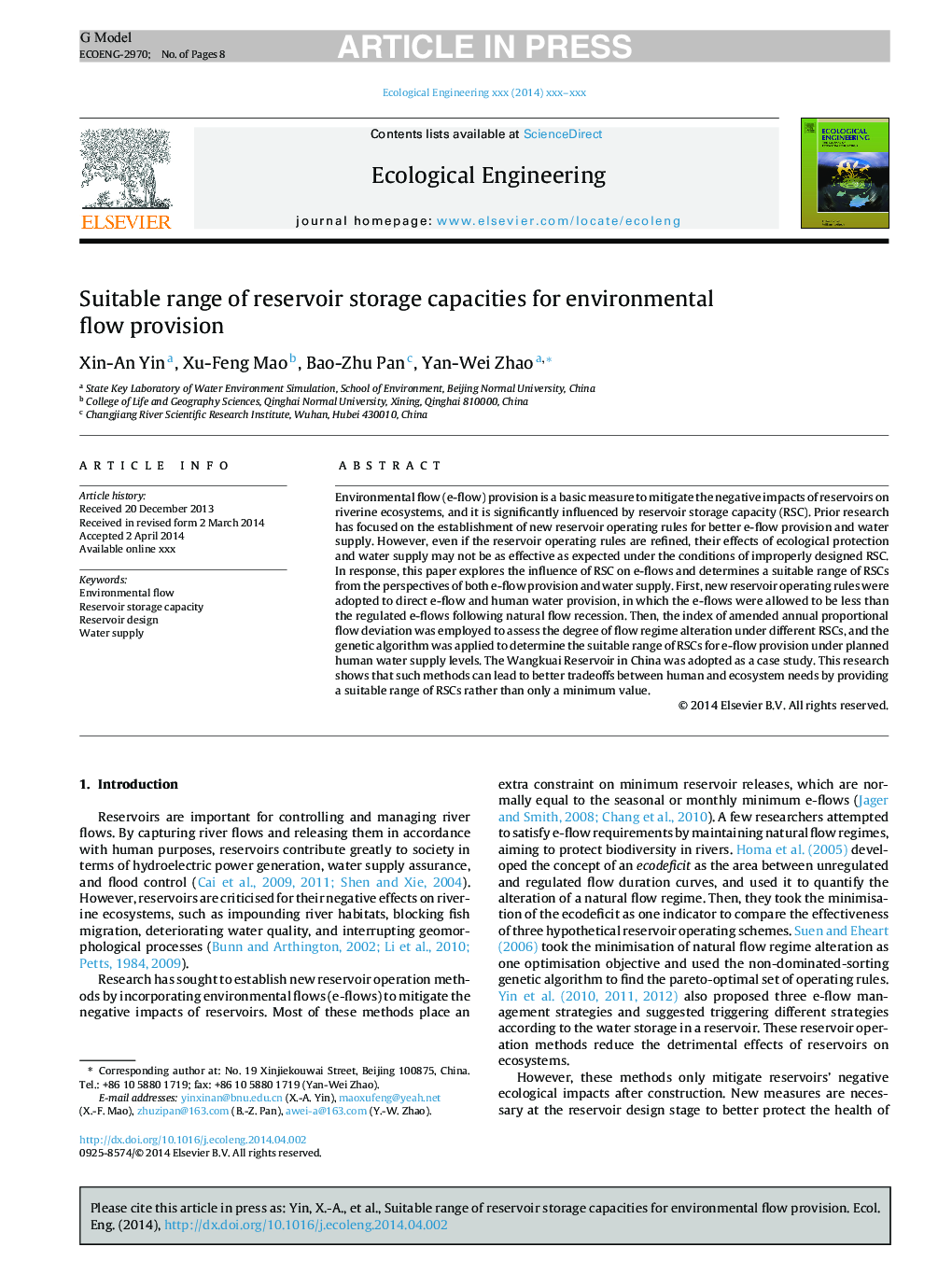| Article ID | Journal | Published Year | Pages | File Type |
|---|---|---|---|---|
| 6301819 | Ecological Engineering | 2015 | 8 Pages |
Abstract
Environmental flow (e-flow) provision is a basic measure to mitigate the negative impacts of reservoirs on riverine ecosystems, and it is significantly influenced by reservoir storage capacity (RSC). Prior research has focused on the establishment of new reservoir operating rules for better e-flow provision and water supply. However, even if the reservoir operating rules are refined, their effects of ecological protection and water supply may not be as effective as expected under the conditions of improperly designed RSC. In response, this paper explores the influence of RSC on e-flows and determines a suitable range of RSCs from the perspectives of both e-flow provision and water supply. First, new reservoir operating rules were adopted to direct e-flow and human water provision, in which the e-flows were allowed to be less than the regulated e-flows following natural flow recession. Then, the index of amended annual proportional flow deviation was employed to assess the degree of flow regime alteration under different RSCs, and the genetic algorithm was applied to determine the suitable range of RSCs for e-flow provision under planned human water supply levels. The Wangkuai Reservoir in China was adopted as a case study. This research shows that such methods can lead to better tradeoffs between human and ecosystem needs by providing a suitable range of RSCs rather than only a minimum value.
Keywords
Related Topics
Life Sciences
Agricultural and Biological Sciences
Ecology, Evolution, Behavior and Systematics
Authors
Xin-An Yin, Xu-Feng Mao, Bao-Zhu Pan, Yan-Wei Zhao,
